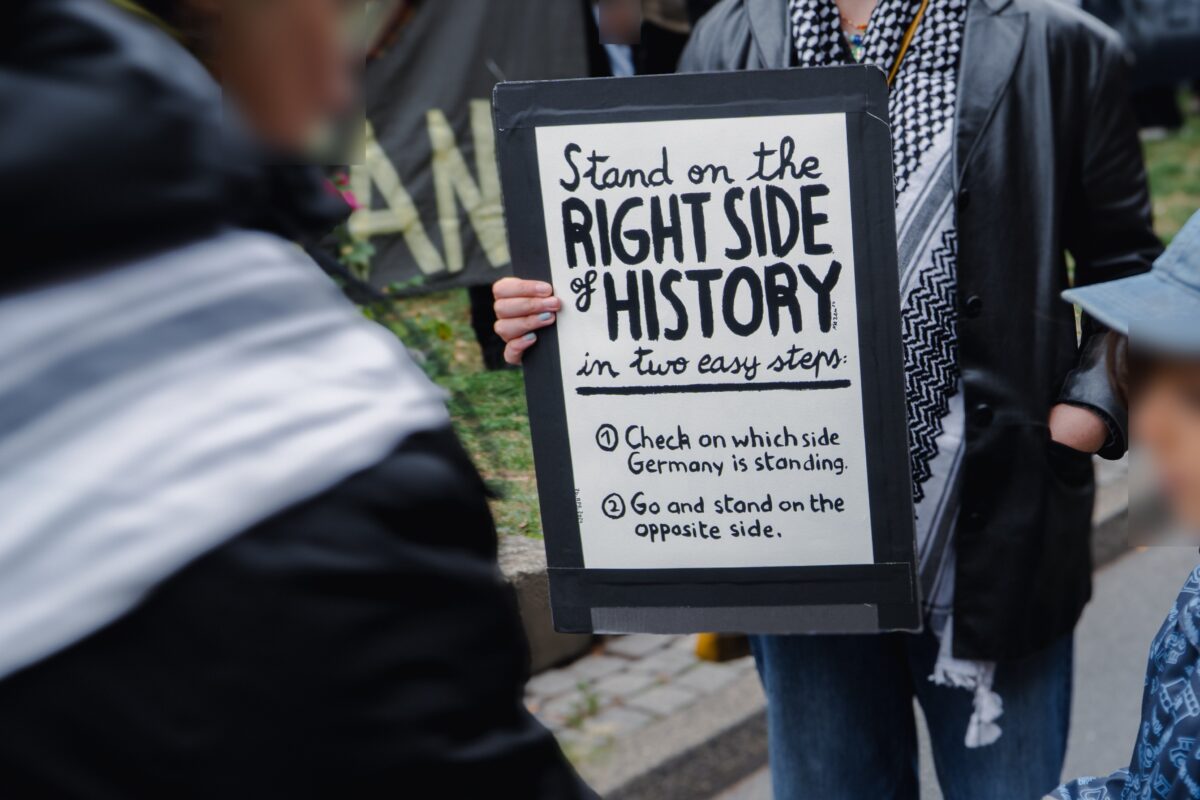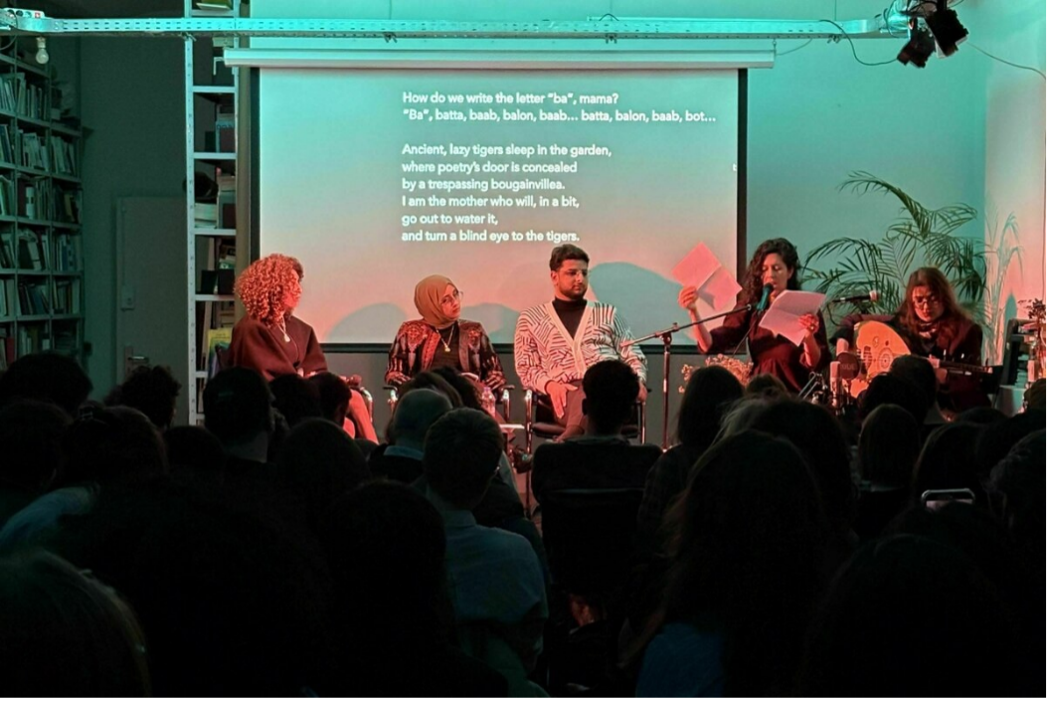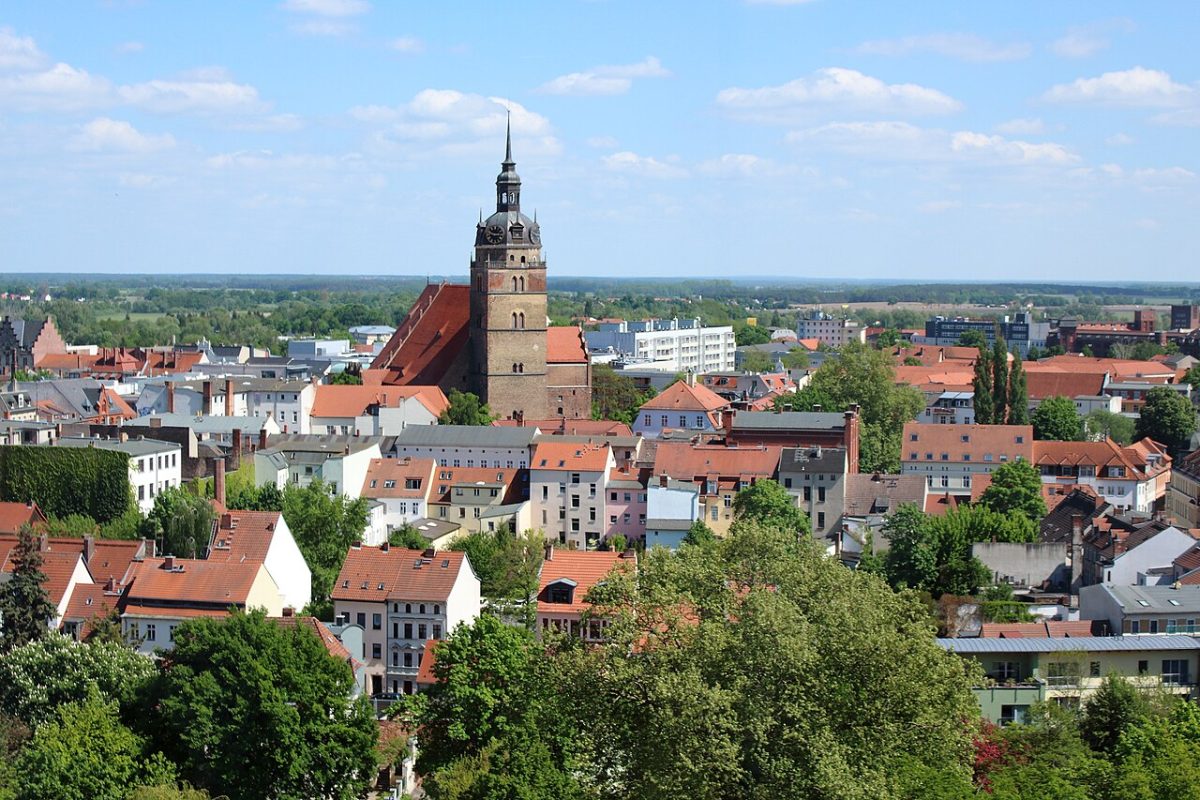There’s been a lot of talk about German guilt in the pro-Palestine movement. Stickers have been produced saying “free Palestine from German guilt”, and an Al Jazeera article has attacked the “nationwide guiltwashing – or the cover-up of authoritarian state policies through the pretense of addressing Germany’s historical guilt for the Holocaust.”
I want to argue that “German guilt” is an imprecise and not particularly helpful way of describing a very real phenomenon. As early as March, 69% of Germans felt that Israel’s actions in Gaza were unjustified, and only 18% found it justified. As it becomes more obvious that Israel is directly targeting schools, hospitals, and even UN peacekeepers, support for Israel among the German public is not rising.
At the same time, demonstrations in Germany are significantly smaller than those in other countries. Most of them have been dominated by non-Germans. It seems clear that something is different in Germany—but can this all be attributed to guilt?
This article is not about why the German state supports Israel, which has nothing to do with guilt and everything to do with support for, and competition with, US imperial interests in the oil-rich MENA region. What’s most interesting here is how so many German people manage to stay silent in the face of an obvious genocide.
It didn’t start on October 7th
I first moved to Germany in 1995. As soon as I could understand the language properly, I was regularly attending meetings on Palestine. It wasn’t that Germans weren’t discussing Israel and Palestine, but they were doing it within very strange parameters.
The meetings almost always ran according to a certain pattern. The speaker would describe the horrific conditions which experienced by the Palestinians. Everyone would look sad. When the discussion was opened up to the public, people would say how terrible this was, and how sorry they were that this was happening.
Then the second or third speaker would end their contribution saying “but of course, we Germans can’t discuss Israel.” Everybody murmured their approval, and the debate was closed down after that. My friend Samieh and I developed a strategy to deal with this. Samieh is a Palestinian from Yafa. I am British. At the moment of the inevitable “Germans can’t talk about this” contribution, we thrust our hands up. “We’re not German, can we say something about it?”
Surprisingly, this strategy always worked. It was not that this lefty-liberal German public didn’t want to hear about the Palestinians. They just had some sort of conditioning telling them that if they talked about it, it would be the first step in a process which ended with them building gas chambers.
Who is guilty?
We were talking about this in a recent Left Berlin book club. Someone mentioned a story that a friend had told him. One day, the friend’s daughter came home from school and asked “Daddy, are we responsible for the Holocaust?” On one level, it is plainly ridiculous that a young girl would be responsible for something which ended nearly 80 years ago. And yet this seems to be what is being taught in German schools.
It’s not just schools. In 1996, Daniel Goldhagen brought out the book Hitler’s Willing Executioners, which argued that all Germans were to blame for the Holocaust and that as penance their grandchildren should unconditionally support the State of Israel. Goldhagen won the Democracy prize, and his book was a best-seller. A 1997 article said that it had already sold 160,000 copies in Germany alone.
Incidentally, Germans were not the only people buying the book. It was prominently displayed in the English shop in Stuttgart, where I lived at the time. The idea of collective German guilt went hand in hand with ‘Two World Wars and One World Cup’ English nationalism.
The purpose of this article is not to examine the deficiencies in Goldhagen’s argument, but if you want to know more, I highly recommend Norman Finkelstein and Ruth Bettina Birn’s forensic book A Nation on Trial: The Goldhagen Thesis and Historical Truth.
But what does this have to do with Gaza?
Let us assume for one second that the thesis behind German guilt is true, that is that all Germans—and not just those who were alive in the 1930s and 1940s—are to blame for the Holocaust. Just what has this to do with support for the genocide on Gaza? Coming to this conclusion requires 2 or 3 sleights of hand which are based on, shall we say, flimsy logic.
The first sleight of hand is to reduce Nazi Germany’s crimes to antisemitism. I want to make myself clear: the industrial genocide of 6 million Jews was the worst crime committed by Nazi Germany. But it was not the only crime. The Nazis also managed to murder millions of Sinti and Roma people, LGBT+ people, trade unionists, Communists, and even Social Democrats.
And yet, so-called “antiziganismus” is not taboo in modern Germany. There are few howls of protest against plans to tear down Berlin’s only memorial to the Roma and Sinti who were killed in the Holocaust for a railway. Similarly, anti-Communism is so acceptable, that it was enshrined in post-war West German law. In 1956, the Communist Party was banned.
Homophobia is slightly more complicated, as some liberals use their supposed support for LGBT+ rights to pinkwash Israel’s crimes, but it would be an illusion to suggest that homophobia is not a strong feature of modern German society.
Germany seems to have come to terms with most of the crimes committed by the Nazis, but antisemitism is the one thing which is beyond the pale. Again, I want to be clear about what I am saying. Antisemitism is of course beyond the pale, as are other forms of bigotry.
Israel does not equal Jewish people
The second sleight of hand involves conflating all Jews with the State of Israel, After the Holocaust, most Jews fleeing Germany did not want to go to Israel, but it was racist immigration laws in the West (including the 1905 Aliens Act, set up by Alfred Balfour – yes, the man who made the Balfour Declaration) which prevented many from finding asylum in Western countries.
Even now, most Jewish people do not live in Israel, and an increasing number of Jews actively oppose what the state is doing. A survey of US Jews taken at the end of the last Trump administration provides interesting results: over half had never visited Israel, and 41% felt not too or not at all connected to Israel, a figure which rose to over 50% among people younger than 30.
These figures date from before a wave of Campus protests for Gaza began, much of which was led by young Jewish people. After the protests in Spring 2024, the Middle East Eye found that “at several of the encampments, anti-Zionist Jewish students vastly outnumbered Palestinian or Arab student protesters.”
And yet, the self-appointed protectors of Jewish life insist, it is only Israelis and supporters of Israel who are proper Jews. This brings us to the absurdity of a multi-cultural centre in Berlin shut down because of alleged antisemitism, specifically for hosting an event organised by the Jewish Voice for Peace—the ‘wrong sort’ of Jews.
“Imported antisemitism”
One more step is required to justify the repression of Palestinians, and this is the dubious concept of “imported antisemitism.” In 2018, Angela Merkel made a speech saying “We have refugees now, for example, or people of Arab origin, who bring a different type of antisemitism into the country”. Around the same time, her antisemitism Tsar Felix Klein raised the issue of “imported antisemitism”.
According to the theory of imported antisemitism, Germany has had no problem with antisemitism, apart from a short blip in the 1930s and 1940s. Now that this problem has been dealt with (we’ll ignore the fact that the Fascist AfD is polling around 20%, and around 30% in most East German States), a new scapegoat is in order. If the Holocaust can be reduced to antisemitism, and Judaism to Israel, then it is Arabs, and particularly Palestinians, who are trying to start a new Holocaust.
This is what lies behind a recent claim, made during the Berlin Linke conference, that Hamas and Hisbollah are guilty of eliminatory antisemitism—a term used by the aforementioned Goldhagen to refer to the perpetrators of the Holocaust. Seeing how ridiculous this comparison is doesn’t require you to be a big fan of Hamas and Hisbollah (to let you in on a secret, I’m not).
Besides, the statistics show that most antisemitic violence is carried out by the Right. A report in Al Jazeera in 2021 found that “the German police recorded a total of 2,351 anti-Semitic incidents in 2020. Of these, 95 percent, or 2,224, were committed by right-wing extremists.” Even with the increased tendency to label any criticism of Israel as antisemitic, it is clear that the main danger to German jews is home-grown.
The irony of the situation is that the idea of German guilt is now used to imply that no German is guilty of any antisemitism. It’s all the Arabs’ fault, apparently. The untenable theory intended to prove that Germans are guilty has been flipped around and is now being used to argue the opposite.
So what is the cause of German silence on Palestine?
We should start by rejecting wild generalisations about “the Germans”, “Arabs”, and “Jews”. In each of these groups there are different class interests. Not all Germans were high-ranking Nazis or people who directly profited from the Holocaust.
It is true that some working class Germans supported the Nazis. Others resisted and ended up in Concentration Camps. But just as the grandchildren of Nazis are not responsible for their ancestors’ sins, some descendents of resistance fighters have unfortunately ended up trying to justify the unjustifiable.
It goes without saying that different people have different motivations, but here is my attempt at an explanation for the relative weakness of the pro-Palestine movement in Germany.
Many Germans are appalled by what their grandparents might have done. Quite understandably, they find it uncomfortable to talk about the past. Added to this is the false assumption that Germans have a genetic tendency towards antisemitism. This has led many to believe that talking about Jewish people in any form would make things worse.
These vague inferences were compounded by reunification in 1990, when a fear of a greater Germany emerged (remember what happened last time?) accompanied by a series of high-profile Nazi attacks on refugee homes in both East and West Germany.
This in turn led to the growth of the Antideutsche—a strange but self-confident group of leftist Israel supporters. It is not that the Antideutsche were ever particularly strong outside certain areas of academia, but when everyone else is saying nothing, your shouts sound much louder than they actually are.
This was the situation when 7th October posed questions about anti-colonialism and our relationship to national liberation movements. Most of the German left couldn’t come up with answers. And when the left cannot provide an answer, other, less progressive ideas start to sound more plausible.
Looking forward
One year on, the conditions have shifted slightly in favour of our message. General opposition to Germany’s complicity with Israel’s attack on Gaza has led health workers, students, artists, and other groups to act. Top German NGOs, traditionally having distanced themselves from pro-Palestine statements by international partners, recently launched a petition against German arms sales to Israel.
Above all, German people have eyes and ears. Even though German media tend to show everything from the point of view of the German and Israeli governments, the existence of social media means that people have access to other sources of information, if they choose to use them.
This does not mean that hundreds of thousands of Germans are immediately taking to the streets for Gaza. Many have had to cope with decades of uncertainty and doubt, of thinking that it’s “too complicated”, that there are “problems on both sides” or that this is a discussion which Germans must sit out.
But people are starting to break with the old way of thinking. Israel’s war crimes are so explicit and unapologetic that it is becoming increasingly difficult to justify them or to look away. White Germans are more open to us challenging their old assumptions than they have been in decades.
Last year, I interviewed Ilan Pappe, and he said: “we should not give up on Germany”. Germans still have the time to atone, not just for the crimes of their grandparents, but for the fact that until now they have looked away from genocide. We should approach them, listen to them, but above all we need to convince them that an international movement for Palestine is both possible and necessary – in Germany as much as anywhere else.



